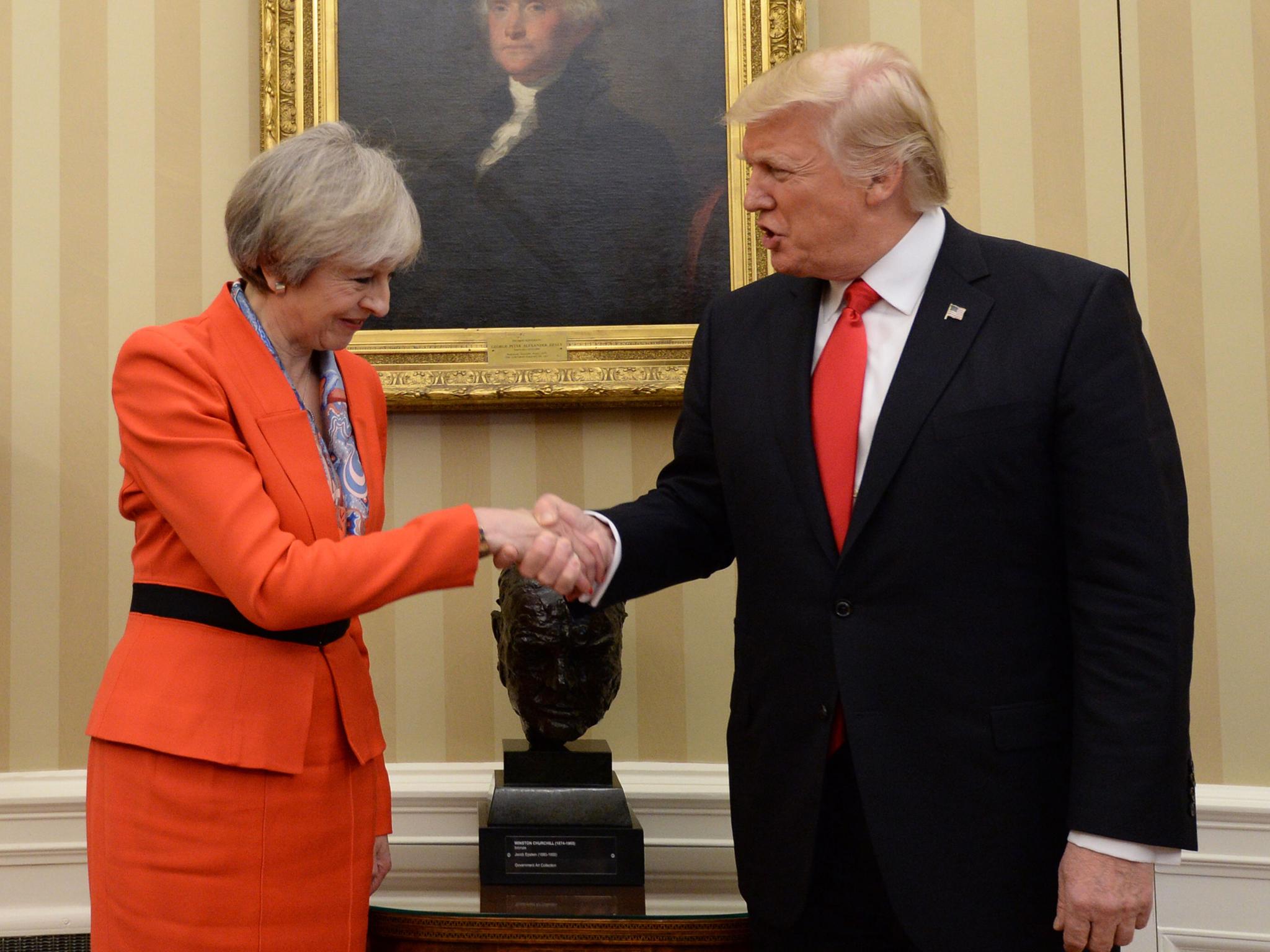Trump’s policies are against Christian teaching – and that’s why Quakers across the UK will be protesting his visit
This will likely be the biggest Quaker Meeting outside of the annual gathering and the largest weekday protest in Britain for decades

Your support helps us to tell the story
From reproductive rights to climate change to Big Tech, The Independent is on the ground when the story is developing. Whether it's investigating the financials of Elon Musk's pro-Trump PAC or producing our latest documentary, 'The A Word', which shines a light on the American women fighting for reproductive rights, we know how important it is to parse out the facts from the messaging.
At such a critical moment in US history, we need reporters on the ground. Your donation allows us to keep sending journalists to speak to both sides of the story.
The Independent is trusted by Americans across the entire political spectrum. And unlike many other quality news outlets, we choose not to lock Americans out of our reporting and analysis with paywalls. We believe quality journalism should be available to everyone, paid for by those who can afford it.
Your support makes all the difference.Christianity has a problem. When in recent weeks the US government’s abusive and widely condemned policy of separating migrant children from their families was publicly criticised, the attorney general Jeff Sessions responded by quoting New Testament writer Paul, who in the book of Romans calls on people to obey the laws of the government.
That this would have ruled out the actions of Jesus himself was seemingly lost on Sessions, as indeed was the fact that Jesus’ family were forced to escape across borders. Sessions was rapidly put right by a host of articles and his analysis was called out as “slave master religion”. A handful of faith leaders went so far as to be arrested themselves in protest at US policy.
But the incident highlighted the problem that Christianity has and the problems that are still being created. To lay it out starkly: in the 2016 presidential election a majority of practising Christians in the USA voted for the most racist and misogynistic candidate going, in so doing helping Donald Trump to the position of the most powerful person in the world.
Against such a background it’s easy to forget that the movement from which Christianity emerged was one that shared possessions in common, renounced war and at least in some ways modelled more progressive understandings of gender than in society more widely. To use some words that weren’t around at the time, it was socialist, pacifist and proto-feminist.
And so it is that alongside imperial Christianity, there is also a tradition of work for peace and justice: counting anti-apartheid leader Desmond Tutu, Catholic Worker founder Dorothy Day, civil rights activist Martin Luther King and environmental organiser Wangari Maathai as only some in its hall of fame. All of them defied the laws of their countries to make change happen, in the tradition of the earliest church.
In a lower profile way, modern Quakerism embodies a similar spirit, represented through campaigns for climate justice, nuclear disarmament and a culture of sanctuary rather than xenophobia. On each of those issues the administration of Donald Trump is having an adverse effect, internationally felt: by pulling out of the Paris climate agreement, refusing to sign the UN nuclear weapons treaty and increasing hostility towards people born abroad.
It’s easy to externalise modern day problems as happening a long way away or to personalise them in the name of political leaders; but when injustice is being justified in the name of the world’s largest faith of which I am part, then I and many other feel the need to say that what he is doing is not in our name.
The role we can each play may feel small but together it can add up. For my part, when Trump visits Britain on Friday 13 July I will join with others in the prayerful contemplation of a Quaker Meeting before joining the mass demonstration against his conduct and policies. At the time of writing it seems likely that it will be the biggest Quaker Meeting outside of the annual gathering and the largest weekday protest in Britain for decades.
Of course I’d like to play my part in disrupting the US president’s hoped-for media opportunity in the hope of showing an alternative to what he stands for. But that is a quick fix. The bigger job is to first acknowledge then dismantle the scaffolding of structural racism, racism and economic inequality that allowed him to get where he is, and which allow comparable policies to happen here in Britain.
People in this country might only have a day or two to protest Trump. But “Trumpism” is something we can challenge every day, beginning in our faith community.
The Quaker Bloc at the Stop Trump march on 13 July will meet at London’s Friends House Euston at 12 noon.
Join our commenting forum
Join thought-provoking conversations, follow other Independent readers and see their replies
Comments